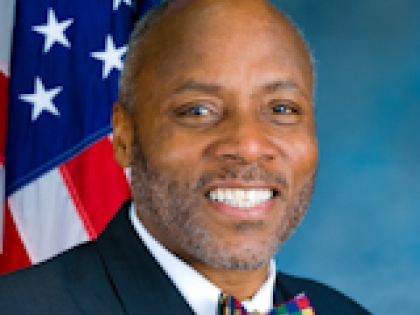
Albany Panel Signals It Won’t Give the Mayor Carte Blanche on Schools - New York Times 5/5/09
Albany Panel Signals It Won’t Give the Mayor Carte Blanche on Schools
By JENNIFER MEDINA
Published: May 5, 2009
ALBANY — As state legislators begin to review the landmark state law that gave Mayor Michael R. Bloomberg control over the New York City schools, the question seems not to be whether changes will be made, but how significant they will be.
The law expires on June 30, and lawmakers are expected to turn their attention to the matter now that a deal has been reached to rescue the Metropolitan Transportation Authority.
On Tuesday, as Joel I. Klein, the schools chancellor, addressed members of the Senate Education Committee here, he was pressed to explain how he thought the law should be improved.
The committee members repeated now-familiar complaints that parents have been shut out of the school system and that there is not enough oversight of the Department of Education’s budget. They also voiced skepticism over what Mr. Klein has stressed were some of the administration’s greatest accomplishments, like increases in graduation rates and test scores.
While the vast majority of legislators have said that they oppose returning control to local community school boards and a Board of Education, which ran the system until 2002, several have indicated that they would favor a governing board with veto power over the mayor.
“Dictatorial rule does not work,” Bill Perkins, a Democratic senator who represents Harlem, said during a sharp exchange with Mr. Klein. “Mayoral control has been a disaster for parents. It has not gotten better.”
Mr. Klein has come to Albany a handful of times in the last several months to make his case to legislators for keeping mayoral control intact and to solicit their feedback.
“I think there is some lack of clarity — are we a city or a state agency?” Mr. Klein said, adding that he would rather have the distinction clearly defined than have to deal with “parallel systems.” In some instances, like the city budget allocation process, the Department of Education is treated like other city departments. In other cases, it is subject to state regulations, not the city’s.
One sign of the hurdle Mr. Klein faces could be seen on Tuesday during a rally near the Capitol, where a parent group, the Campaign for Better Schools, lobbied for changes in the law. Nearly a dozen legislators voiced support for the group, who repeatedly chanted “Hey, hey, ho, ho — one-man rule has got to go!”
Micah Z. Kellner, a Democratic assemblyman who represents the East Side of Manhattan, drew loud cheers when he said, “I think we’re all fed up that the Education Department spends a lot of time and money on spin doctoring what we know are problems.”
Several legislators have submitted bills that would tweak the current school governance structure. One would require more notice and community comment before a struggling school could be closed. Another would give the borough presidents a more significant role. Another would require that the Department of Education be treated like other city agencies, with oversight of its budget from the City Council.
Mr. Kellner referred to one proposal that would have the mayor appoint just 6 of the 13 members of the Panel for Educational Policy, the oversight group that replaced the Board of Education. Currently, the mayor appoints eight members of the panel; he can dismiss them at any time.
“If the mayor knows that his policies are so good, he shouldn’t be so afraid of having to convince one other person to approve them,” Mr. Kellner said
The Bloomberg administration has so far remained largely quiet on the specifics of the legislative proposals, but has made it clear it would be adamantly opposed to giving any panel or board veto power.
“If you have divided authority, what you have is no one in charge,” Mr. Klein said. “An independent board would return this city to the politics of paralysis.”
Near the end of the hearing, Senator Kevin Parker, a Democrat who represents Brooklyn, urged Mr. Klein to present a viable alternative to the current system.
“I object to this false dichotomy of total control and going back to the way things were,” he said. “If you come in here and say the system is perfect, you are going to end up with something that you hate.”